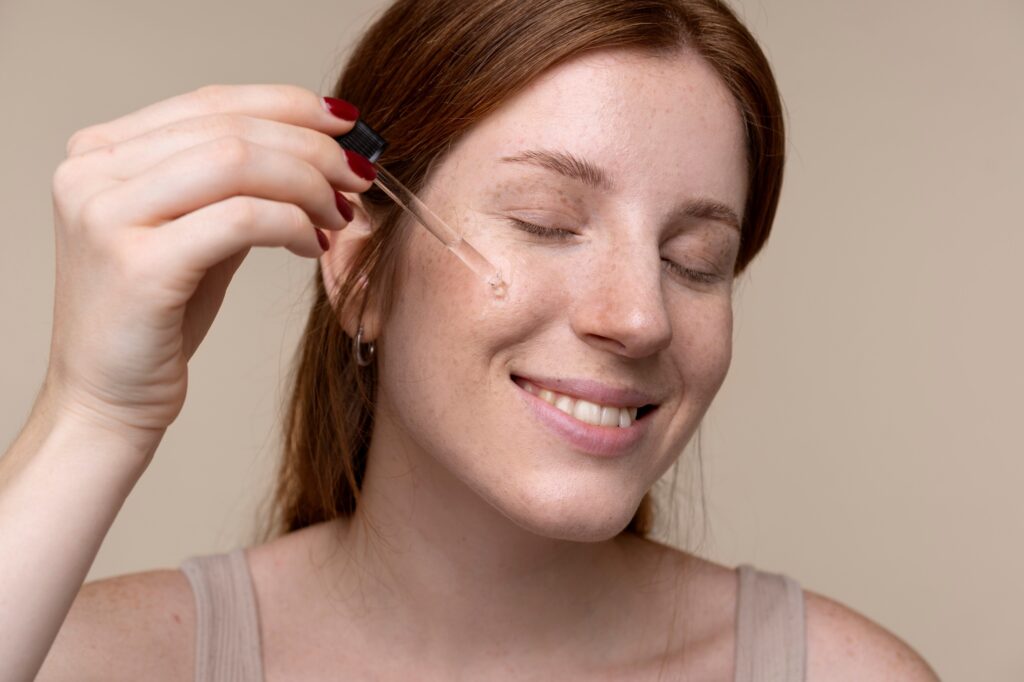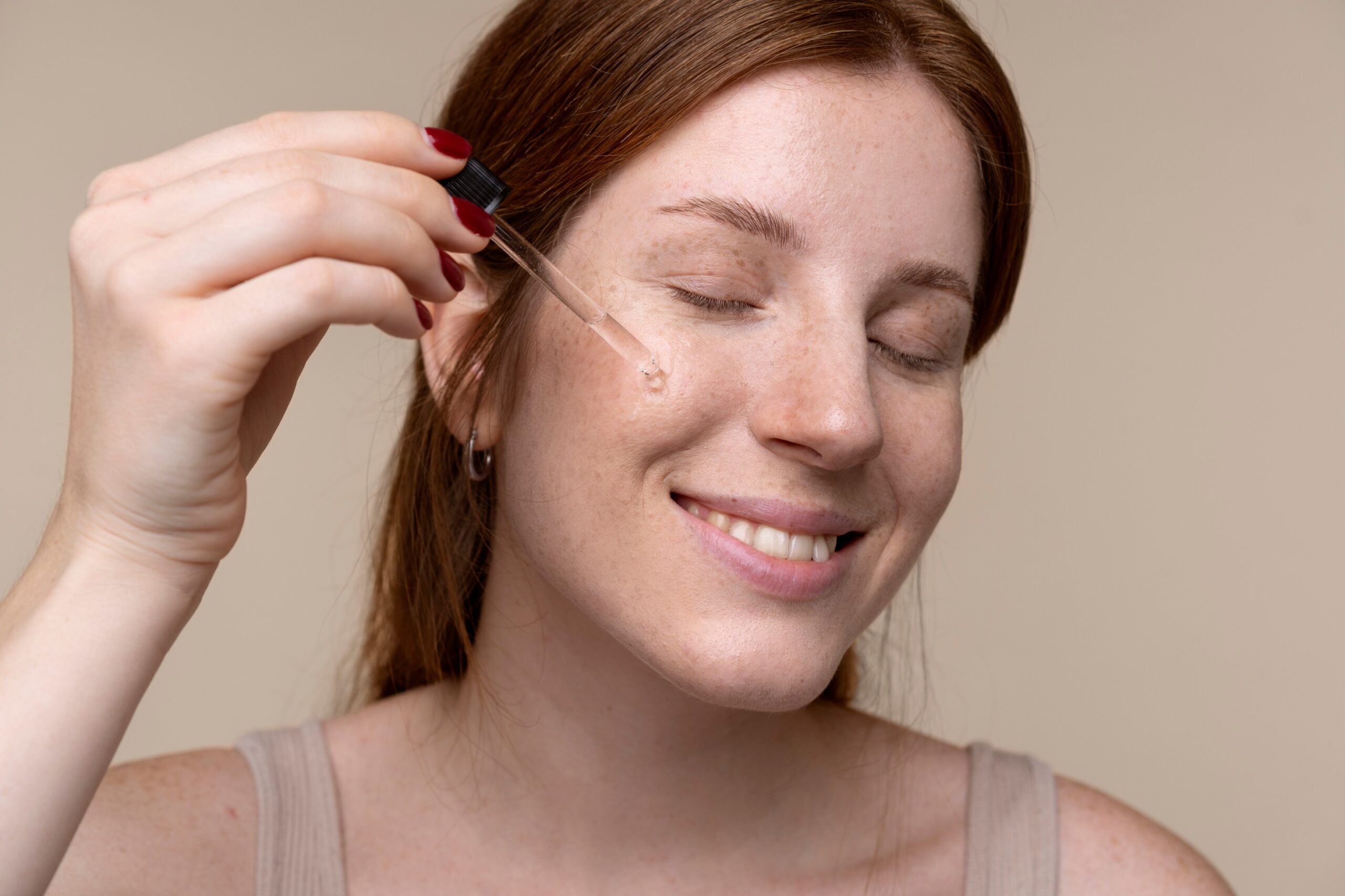
Achieving well-hydrated skin can make a significant difference in your overall complexion, making it look more radiant, smooth, and healthy. A hydrating serum can be your best ally in maintaining moisture balance and achieving that dewy, glowing look. This guide will help you understand how to use a hydrating serum for maximum effectiveness, the best serums to consider, and a complete skin hydration routine.
What is a Hydrating Serum?
- Definition: A hydrating serum is a lightweight, water-based formula that penetrates deep into the skin layers to deliver moisture.
- Key Ingredients: Look for serums with ingredients like hyaluronic acid, glycerin, ceramides, and aloe vera, which are known for their moisture-retaining properties.
- Benefits:
- Instantly plumps up the skin.
- Reduces fine lines and wrinkles caused by dehydration.
- Enhances the skin’s natural moisture barrier.
Why Use a Hydrating Serum?
- Deep Moisture Penetration: Serums are formulated with small molecules that allow active ingredients to reach deeper layers of the skin.
- Quick Absorption: Unlike thicker creams, hydrating serums absorb quickly, making them ideal for layering with other skincare products.
- Improves Skin Texture: Regular use can improve the texture of dry, rough, or flaky skin by providing continuous moisture.
How to Use a Hydrating Serum Effectively
Follow these steps to integrate a hydrating serum into your daily skincare routine:
Step 1: Cleanse Your Skin
- Use a gentle cleanser to remove impurities, oil, and makeup. Clean skin allows better absorption of the serum.
- Pat your face dry with a soft towel—avoid rubbing as it can irritate the skin.
Step 2: Apply Toner (Optional)
- Toning helps to balance the pH of your skin and prepare it for better absorption of the serum.
- Opt for a hydrating toner with ingredients like rose water or hyaluronic acid for an added moisture boost.
Step 3: Apply the Hydrating Serum
- Use 2-3 drops of the serum. A little goes a long way since serums are highly concentrated.
- Apply on slightly damp skin: This helps to lock in the moisture and ensures that the serum penetrates deeply.
- Gently massage in upward strokes: Use your fingertips to massage the serum into your face and neck for better absorption.
- Focus on dry areas: Pay extra attention to dry patches or areas prone to dehydration, like around the nose and forehead.
Step 4: Follow with a Moisturizer
- Seal the serum with a moisturizer to lock in the hydration and create a protective barrier on the skin.
- Choose a lightweight moisturizer if you have oily skin, or a richer cream if your skin is particularly dry.
Step 5: Sunscreen (Morning Routine)
- Always apply sunscreen as the final step in your morning routine after using a serum to protect your skin from UV damage.
- SPF 30 or higher is recommended for everyday use.
Best Times to Use a Hydrating Serum
- Morning Routine: Provides a hydration boost that helps your skin stay moisturized throughout the day.
- Night Routine: Enhances skin repair and regeneration during sleep for a more refreshed look in the morning.
Tips for Maximizing Serum Benefits
- Use regularly: Consistency is key. Use the serum daily to see visible improvements in your skin’s hydration levels.
- Store properly: Keep the serum in a cool, dry place away from direct sunlight to maintain its efficacy.
- Combine with other serums: You can layer a hydrating serum with other targeted serums like vitamin C or retinol for added skin benefits. Just ensure to apply the serum with a thinner consistency first.
Best Serums for Skin Hydration
- Hyaluronic Acid Serum: Known for holding up to 1000 times its weight in water, making it perfect for intense hydration.
- Niacinamide Serum: Helps to improve the skin barrier and reduce water loss, making it a great companion for dry skin.
- Aloe Vera-based Serum: Provides a cooling effect and soothes dry, irritated skin.
Summary
Incorporating a hydrating serum into your skincare routine can make a significant difference in your skin’s hydration levels and overall appearance. Cleanse your skin, apply a few drops of serum on slightly damp skin, and follow up with a moisturizer to seal in moisture. Regular use, combined with the right ingredients, will leave your skin feeling soft, plump, and well-hydrated. With these steps, you can make the most out of your hydrating serum and enjoy a glowing, healthy complexion every day.

